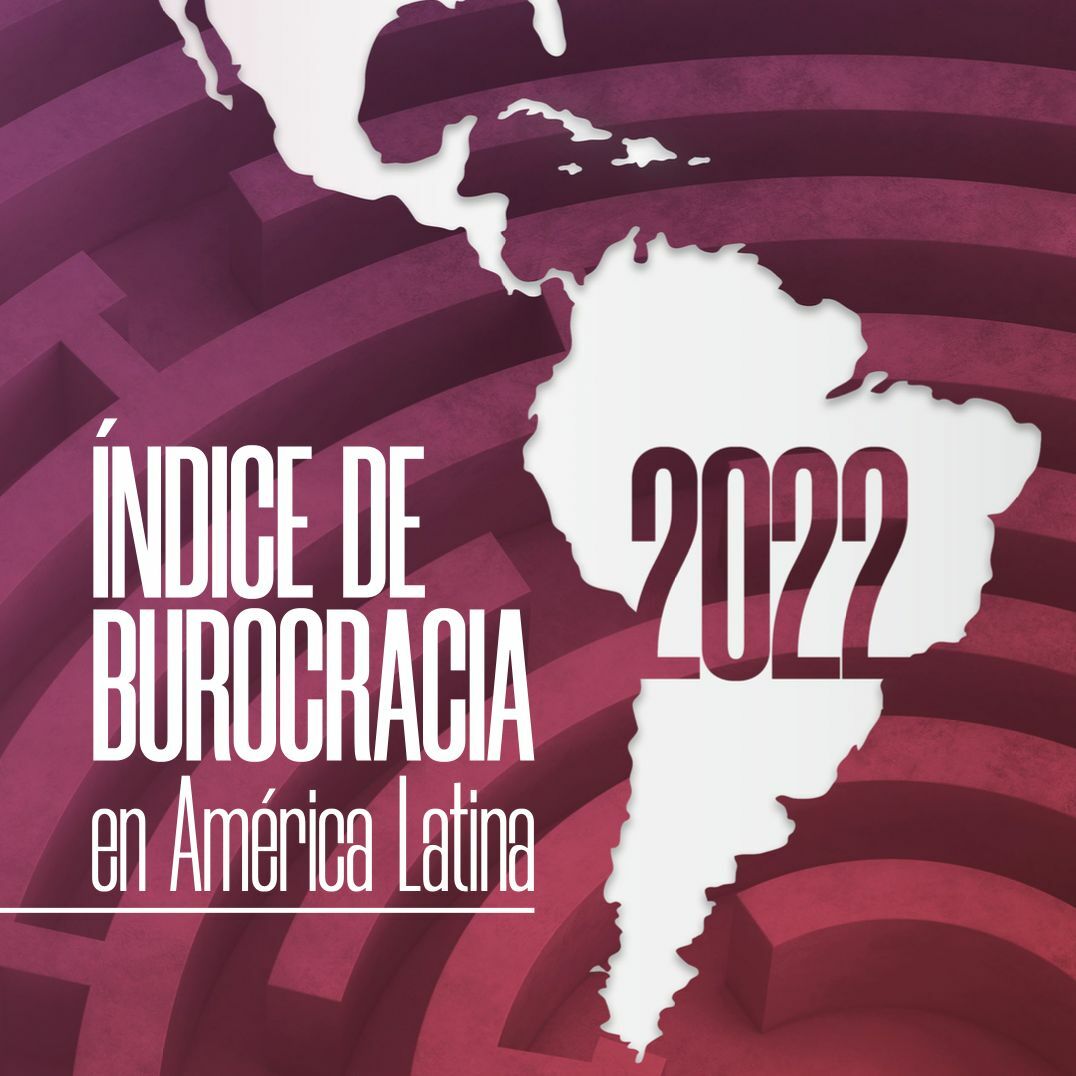
Click here to read a condensed summary of the report in English.
Click here to read the full report (English).
Click here to read the full report (Spanish).
Atlas Network’s Center for Latin America and the Adam Smith Center for Economic Freedom at Florida International University announce the publication of the Index of Bureaucracy in Latin America 2022, which measures the “time-tax” that is involved in complying with all rules and regulations imposed by government bureaucracies on small and micro businesses across a sample of eleven different countries in the region. This study has extended the universe of countries in the region from the original six in 2021, with the participation of the following partners of Atlas Network throughout Latin America:
· Fundación Libertad (Argentina)
· Instituto Liberal (Brazil)
· Instituto de Ciencia Política Hernán Echavarría Olózaga (Colombia)
· IDEAS LAB (Costa Rica)
· Instituto Libertad y Desarrollo (Chile)
· Instituto Ecuatoriano de Economía Política (Ecuador)
· México Evalúa (México)
· Asociación de Contribuyentes del Perú (Peru)
· Instituto OMG (Dominican Republic)
· Centro de Estudios para el Desarrollo (Uruguay)
· Centro de Divulgación y Conocimiento Económico, Cedice-Libertad (Venezuela)
The final data shows that the country-specific weighted averages of hours devoted towards bureaucratic compliance for small businesses across the sample of chosen countries is significantly more onerous than other countries in more developed regions, such as Europe.
In the study, Dr. Sary Levy-Carciente emphasizes the importance of these metrics as a valuable tool to identify the policy transformations required in public administration in order to facilitate trade and remove barriers to achieve greater inclusive prosperity for all citizens.
Similarly, Brad Lips, CEO of Atlas Network, comments that “to unleash human ingenuity and bring about rising living standards, governments must reduce the hurdles that stand before working citizens.” Of course, not all regulations are misguided, “but we must be clear-eyed in recognizing that the expansion of the administrative state has created a predatory dynamic that punishes regular people.”
Carlos Díaz-Rosillo, Founder and Director of the Adam Smith Center for Economic Freedom at Florida International University, highlights that “this important initiative, now presented as a joint partnership between the Adam Smith Center for Economic Freedom and Atlas Network, emphasizes the bureaucratic burdens that small enterprises must confront…for their daily efforts to get ahead.” The key findings of this study “will become a useful instrument to secure one of the key objectives that motivate the work of the Adam Smith Center: the relationship between thinking and doing, and the need for a sound diagnostic of our problems as well as the required transformations.”
Atlas Network and the Adam Smith Center jointly support the fundamental lesson of this study, namely, “déjame trabajar,” or “let me work.”